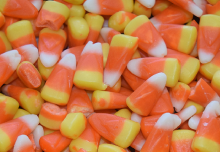On Groundhog Day this year, Punxsutawney Phil saw his shadow, predicting six more weeks of winter. That means that we still have several more weeks of cold weather to get through before we can enjoy any warmer weather.
Much of the U.S. has been struck with bitter cold and snow this winter. One issue that can arise from below freezing temperatures is frozen water pipes. In the case of frozen pipes, prevention is often the best solution. Once pipes are frozen, it is usually too late.
The two types of water pipes that are susceptible to freezing are outdoor pipes and unheated indoor pipes. In order to avoid freezing of outdoor pipes, make sure that any outside faucets, such as those used for lawn sprinkling systems, are shut off and drained completely. If you have indoor pipes in an unheated area, such as a basement, crawl space or outer wall, be sure to prevent air drafts and properly insulate the pipes. If the temperature has been below freezing for an extended period of time (two to three days), you should wrap the pipes with heat tape or insulation material and use a space heater if you can do so safely.
Aqua Pennsylvania officials recommend leaving a very thin stream of water running continuously from at least one tap if the outside temperature fluctuates around 10 degrees or less for an extended period of time. Ideally, this should be the tap furthest from the water meter. In the long run, the additional cost of running a tap continuously will be cheaper than the repair bill you would have to pay for ruptured water pipes.
If pipe freezing is a habitual problem in your home, you should make sure you have the necessary equipment on hand at all times. This includes heat tape, pipe insulation, a portable space heater and a portable hair dryer.
It is also important to locate and visibly mark the master shut-off water valve. This will enable you to quickly and easily turn the water off if a pipe starts leaking. These are typically located in the basement near the water meter.
Many winter weather complications can be avoided with proper planning and prevention. By taking the time to invest in a few preventative measures, you can decrease your chances of having to deal with the inconvenience and expense of frozen and burst water pipes this winter.






